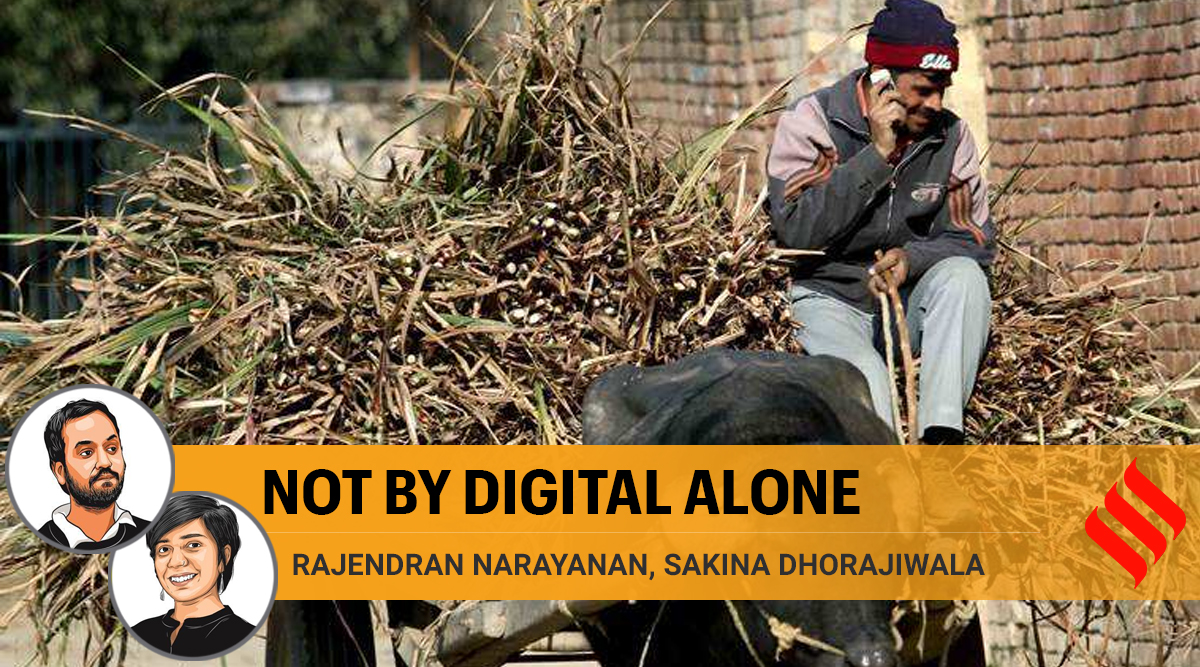
Remember the early days of the internet, when it took several minutes to connect to the web through a dial-in modem? Or when you had to wait in line at an STD booth to make an outstation call? Since then, we have made massive strides in digital technologies. Improvements in internet banking mean that a buffet of products are available at the fingertips of consumers. But imagine if one had to travel miles and wait for several hours to make one banking transaction. This is a reality for the vast majority of the rural populace. In rural India, an over-reliance on digital technology alone has widened the distance between the rights holder and their entitlements. This is exemplified in the pursuit of financial inclusion.
The Direct Benefits Transfer (DBT) initiative is a technology induced step in improving financial inclusion among other stated goals. Although DBT has been operational since 2011, it has become synonymous with the Aadhaar Payments Bridge Systems (APBS) since 2015.
Various government programmes such as maternity entitlements, student scholarships, wages for MGNREGA workers fall under the DBT initiative where money is transferred to the bank accounts of the respective beneficiaries. But the beneficiaries face many hurdles in accessing their money. These are referred to as “last mile challenges”. To deal with these, banking kiosks known as Customer Service Points (CSP) and Banking Correspondents (BC) were promoted. These are private individuals who offer banking services through the Aadhaar Enabled Payment Systems (AePS). Subject to network connectivity and electricity, beneficiaries can perform basic banking transactions such as small deposits and withdrawals at these kiosks.
While there are some merits of online payments, the process of transition from older systems and the APBS technology itself needs more scrutiny. Workers have little clue about where their wages have been credited and what to do when their payments get rejected, often due to technical reasons such as incorrect account numbers and incorrect Aadhaar mapping with bank accounts. While some attention is being paid by some state governments in resolving rejected payments for MGNREGA, the lack of any accountability for APBS and AePS and absence of grievance redressal would continue to impact all DBT programmes.
More importantly, the workers/beneficiaries have rarely been consulted regarding their preferred mode of transacting. Lack of adequate checks and balances, absence of any accountability framework for payment intermediaries and a hurried rollout of this technical juggernaut have put the already vulnerable at higher risk of being duped. This has created new forms of corruption as has been recently evidenced in the massive scholarship scam in Jharkhand, where many poor students were deprived of their scholarships owing to a nexus of middlemen, government officials, banking correspondents and others. These exclusions are digitally induced.
To understand some-last mile challenges, LibTech India recently released a research report based on a survey of nearly 2,000 MGNREGA workers across Andhra Pradesh, Jharkhand, and Rajasthan. The survey attempted to understand experiences of workers in obtaining wages in hand after they were credited to their bank accounts. Rural banks are short-staffed and tend to get overcrowded. Forty-two per cent of people in Jharkhand and 38 per cent in Rajasthan took more than four hours to access wages from banks. This was just 2 per cent in AP. Overall, an estimated 45 per cent had to make multiple visits to the bank for their last transaction.
CSP/BCs appeared to be a convenient alternative to banks due to their proximity. However, an estimated 40 per cent of them had to make multiple visits to withdraw from CSPs/BCs due to biometric failures. In general, for MGNREGA workers, a visit to the disbursement agency implies that they don’t get to do that day’s work and therefore lose that day’s wages. The average travel cost for one visit to a bank in Jharkhand is Rs 50 which becomes Rs 100 for two bank visits. Adding the lost daily minimum wages (at Rs 171) for two visit days, it becomes Rs 342 and adding a modest Rs 25 for food, this becomes Rs 392. Effectively, a worker in Jharkhand has to spend more than a third of her weekly wages just to withdraw her weekly wages.
The only way for rural bank users to keep track of their finances is through their bank passbooks. However, more than two-thirds of time workers were denied the facility to update their passbooks at banks. Some workers get charged (45 per cent in Jharkhand) for transacting at CSPs/BCs which is meant to be free.
There are just 14.6 bank branches per 1 lakh adults in India. This is sparser in rural India. Despite hardships of access, most workers preferred to transact at the banks. Using bank branch data, Robin Burgess and Rohini Pande demonstrated that branch expansion into rural unbanked locations significantly reduced poverty. With technological advances, the costs of running rural banks will also be lower. When the outcome is a significant reduction in poverty, additional infrastructure costs should be imperative from a policy perspective.
While we await the days when rights of the marginalised attain primacy over technological quick fixes, returning to basics might prove valuable. This would minimally entail understanding that the right to work also includes the right to access your own money in a timely and transparent manner. These rights must be protected through strengthening grievance redressal processes and setting accountability norms for all payment intermediaries. A technological intervention must have a governance framework in which protection of rights must be fundamental and which provides more choices to the marginalised.
This article first appeared in the print edition on January 6, 2021 under the title ‘Not by digital alone’. Narayanan teaches in Azim Premji University, Bengaluru and is with LibTech India. Dhorajiwala is a researcher at LibTech India
Source : From the Web